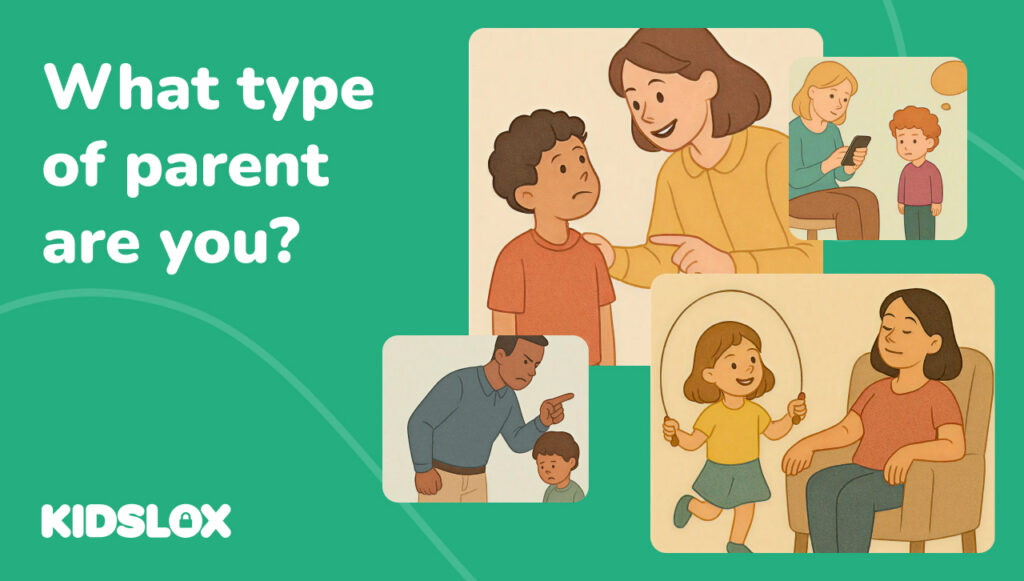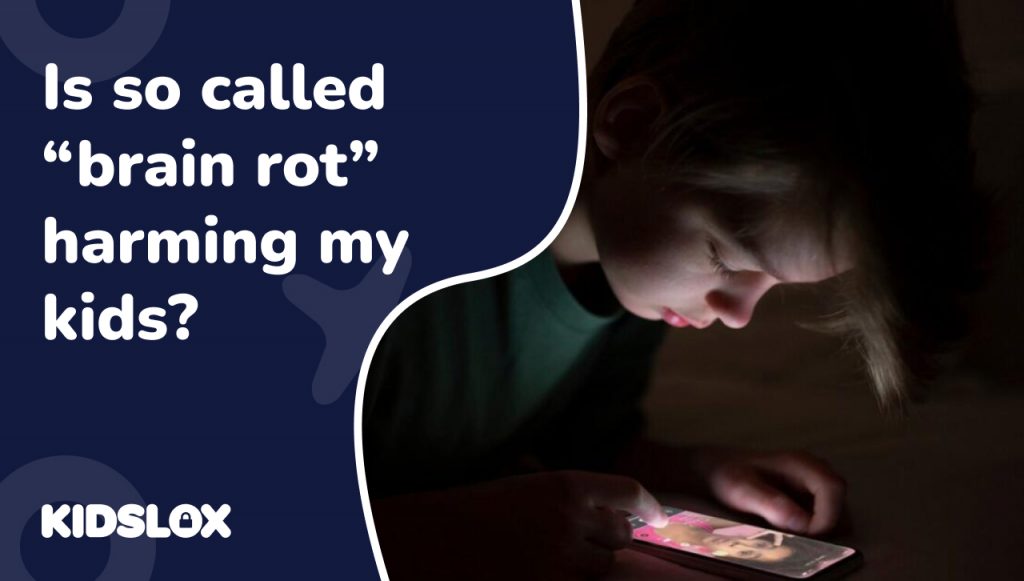What are the four styles of parenting and why does it matter?
In the world of developmental psychology, parenting styles are typically broken down into four core categories. These are known as the four parenting styles, or the 4 types of parenting, and they each describe a distinct approach to raising children. Understanding where you sit within these categories can give you powerful insights into how your parenting decisions affect your child’s emotional and psychological development.
The concept was first introduced in the 1960s by clinical and developmental psychologist Diana Baumrind. Based on her research, and expanded by later studies, experts now recognize these types of parenting styles:
- Authoritative Parenting – Often seen as the most balanced approach, authoritative parents combine warmth with structure. They set clear boundaries but do so with empathy and open communication.
- Authoritarian Parenting – These parents are more strict and controlling. They tend to enforce rules without room for discussion and expect obedience above all else.
- Permissive Parenting – Permissive parents are warm and nurturing but often avoid setting firm limits. They’re more likely to give in to their child’s wants and struggle with consistency.
- Neglectful Parenting – Also known as uninvolved parenting, this style is marked by emotional detachment and a lack of both guidance and responsiveness.
Each of these different parenting styles exists on a spectrum of two key factors: responsiveness (how emotionally attuned and supportive the parent is) and demandingness (how much control or structure the parent imposes). While most parents don’t fit perfectly into just one box, the 4 types of parenting styles offer a useful framework for self-reflection and growth.
Authoritative Parenting Style: Balanced, Supportive, and Structured
If you’re the kind of parent who sets boundaries but explains them, listens to your child’s point of view, and encourages independence while staying present and supportive—you might be practising the authoritative parenting style.
Widely regarded by psychologists as the most effective of the four parenting styles, authoritative parenting strikes a thoughtful balance between warmth and structure. It’s high in both responsiveness (emotional support and engagement) and demandingness (clear expectations and rules). This combination makes it one of the most adaptable and developmentally supportive types of parenting styles.
Authoritative parents:
- Set consistent and fair rules
- Explain the reasoning behind their expectations
- Encourage open dialogue and active listening
- Support their child’s autonomy and self-expression
- Offer praise and constructive feedback
- Enforce boundaries with empathy and respect
Rather than ruling with an iron fist, authoritative parents aim to guide rather than control. Their children are allowed to question decisions, express feelings, and contribute to family discussions. That doesn’t mean these parents are overly lenient—boundaries are clear, and consequences are enforced—but the approach is rooted in mutual respect.
Parenting Techniques in Action
Some common parenting techniques used by authoritative parents include:
- Collaborative problem-solving: Inviting children to help come up with solutions to behavioural challenges or family issues
- Emotion coaching: Helping children label and regulate emotions instead of dismissing or punishing them
- Consistent discipline: Following through on rules and consequences in a calm, predictable manner
- Positive reinforcement: Praising effort, resilience, and kind behaviour rather than focusing solely on outcomes
These techniques help foster emotional intelligence, independence, and a strong parent-child bond—all central goals in modern parenting.
Authoritative Parenting and Child Outcomes
Research in parenting styles psychology consistently links authoritative parenting with positive developmental outcomes. Children raised in this environment are more likely to:
- Have high self-esteem
- Develop strong social skills
- Perform well academically
- Be emotionally resilient
- Display fewer behavioural issues
- Show greater problem-solving abilities
Because they grow up with both love and limits, these children learn to navigate the world with confidence and empathy.
The success of the authoritative parenting style lies in its balance. Children feel seen, heard, and valued—but also understand that actions have consequences and that limits exist for a reason. This combination helps them internalize discipline rather than fear punishment.
In many ways, authoritative parenting reflects the ideals of modern parenting vs traditional parenting. It maintains some of the structure and expectation found in older child-rearing models, but updates them with emotional intelligence and open communication.
Authoritarian Parenting Style: High Control, Low Warmth
While it may sound similar to authoritative parenting, the authoritarian parenting style is fundamentally different in tone and technique. This approach is high in demandingness—meaning it emphasizes rules, structure, and obedience—but low in responsiveness, offering little emotional engagement or flexibility.
If your motto is “because I said so,” you might fall into this category.
Authoritarian parents typically:
- Enforce strict rules with little room for negotiation
- Expect obedience without explanation
- Discourage questioning of authority
- Use punishment over guidance
- Have limited emotional interaction with their children
In short, the parent holds the power—and the child is expected to comply. This parenting style often stems from a belief that discipline is the primary tool for raising well-behaved, successful children.
Authoritarian parenting tends to rely on traditional, top-down approaches to discipline. These may include:
- Strict enforcement of rules without explaining their purpose
- Verbal reprimands and punishment for disobedience
- Limited positive reinforcement, with a greater focus on mistakes
- High expectations for performance and behaviour, often without emotional support
In this model, affection and open communication are often seen as weaknesses or distractions from authority.
Children raised with an authoritarian parenting style may appear well-behaved and respectful on the surface. But research in parenting styles psychology has shown that this comes at a cost. Long-term, these children may be more likely to:
- Experience low self-esteem
- Struggle with anxiety or depression
- Have difficulty with emotional regulation
- Rebel in adolescence or adulthood
- Develop poor social skills or fear of authority figures
While authoritarian parenting may seem effective in the short term—particularly in environments that value order and discipline—it can hinder a child’s emotional development and sense of autonomy.
This style is often associated with traditional parenting models, particularly in cultures or generations where obedience and respect were prioritised above emotional needs. However, in the context of modern parenting vs traditional parenting, authoritarian methods may feel out of step with today’s emphasis on empathy, mental health, and two-way communication.
It’s important to note that some cultural approaches to parenting blend elements of authoritarianism with high emotional investment, complicating the picture. Still, in most Western psychological models, authoritarian parenting is considered less effective than authoritative parenting for long-term child wellbeing.
Permissive Parenting Style: Warmth Without Boundaries
If you find it difficult to say no to your child, often give in to avoid conflict, or believe that “kids will be kids,” you might be leaning toward the permissive parenting style. Sometimes known as indulgent parenting, this approach is defined by high responsiveness and low demandingness. In other words: lots of love, not many rules.
Permissive parents tend to prioritise their child’s happiness in the moment over long-term structure. While they are emotionally available and nurturing, they often struggle to enforce boundaries or establish consistent expectations.
Permissive parents typically:
- Are highly affectionate and emotionally responsive
- Avoid conflict and rarely discipline their child
- Set few rules or are inconsistent with enforcing them
- Allow children significant freedom, even when it leads to poor decisions
- Take on more of a “friend” role than a traditional authority figure
This parenting style often stems from a deep desire to make children feel loved, heard, and free to be themselves—but without the structure that helps guide behaviour.
Some common parenting techniques associated with permissive parenting include:
- Minimal consequences for poor behaviour
- Giving in after initially setting a limit
- Overindulgence in toys, treats, or screen time
- Allowing negotiation or dismissal of rules
- Avoidance of confrontation, even when behaviour is problematic
Permissive parents may also use reasoning and empathy—but without consistent follow-through, their children may learn that rules are optional.
Children raised with a permissive parenting style often feel loved and emotionally supported. They may develop strong self-esteem and creative thinking—but they’re also more likely to:
- Struggle with self-discipline
- Act impulsively
- Have difficulty respecting authority
- Encounter issues with peers or in structured environments like school
- Develop entitlement or low frustration tolerance
The lack of clear boundaries can make it harder for these children to understand limits, handle disappointment, or make safe, responsible choices independently.
Permissive parenting is often viewed as the opposite of authoritarian parenting. Where one enforces strict rules with limited warmth, the other leads with love but lacks structure. In today’s cultural climate, permissive parenting is sometimes associated with the softer side of modern parenting—particularly in families trying to avoid the rigidity of past generations.
However, experts in parenting styles psychology caution that too much freedom, without guidance, can leave children feeling insecure or overwhelmed by decision-making.
The good news? Permissive parents who learn to introduce clearer boundaries—while maintaining emotional connection—can move closer to the authoritative parenting style, often considered the most beneficial of the four types of parenting styles.
Neglectful Parenting Style: Detached, Disengaged, and Damaging
The final of the four parenting styles is also the most concerning in terms of child development. Neglectful parenting, also referred to as uninvolved parenting, is marked by a lack of both emotional responsiveness and behavioural expectations. These parents are neither demanding nor particularly responsive—which means their children often grow up without the structure, support, or guidance they need to thrive.
This style is sometimes the result of overwhelming life stress, mental health struggles, or a lack of knowledge about child development. In other cases, it can stem from generational patterns or disinterest in parenting responsibilities. Whatever the cause, neglectful parenting is widely considered the most damaging of the 4 types of parenting.
Neglectful parents often:
- Show little interest in their child’s emotional or physical needs
- Avoid setting or enforcing rules and boundaries
- Have limited involvement in their child’s education or social life
- Respond minimally to their child’s achievements, emotions, or concerns
- May appear emotionally distant, distracted, or unavailable
Unlike permissive parents, who are affectionate but overly lenient, neglectful parents are often detached on every level.
This parenting style might look like:
- Children eating, sleeping, or spending time unsupervised
- A parent not noticing or responding to signs of distress or illness
- Little to no discussion about behaviour, school, or friendships
- A “hands-off” attitude that goes beyond independence into disengagement
In some cases, neglectful parenting may overlap with emotional or physical neglect, particularly when a child’s basic needs go unmet. While not every uninvolved parent is intentionally neglectful, the psychology of parenting styles makes it clear that consistent disengagement can have severe developmental consequences.
Children raised by neglectful parents may:
- Struggle with low self-esteem and self-worth
- Experience emotional and social withdrawal
- Perform poorly in school
- Develop attachment issues or distrust in relationships
- Be more prone to risky behaviours in adolescence
- Suffer from anxiety, depression, or delayed emotional development
The absence of both guidance and affection leaves these children to essentially raise themselves. Without a stable anchor, they often lack the resilience and support systems needed for healthy emotional growth.
What Is My Parenting Style?
One of the easiest ways to begin this process is by taking a parenting styles quiz. These tools ask a series of scenario-based questions to help you reflect on:
- How you handle discipline
- How emotionally responsive you are
- How often you enforce (or ignore) rules
- Whether you favour structure, freedom, or a mix
- Your communication style with your child
The goal isn’t to label yourself—it’s to create self-awareness. A quiz can offer insights into patterns you might not have noticed, highlight areas where you’re already strong, and reveal where small shifts could make a big difference.
Parenting Styles and Psychology: Why It All Matters
Understanding the psychology behind different parenting styles isn’t just an academic exercise—it has real-world consequences that can shape the course of a child’s life. From emotional health and behaviour to academic success and relationships, the way a child is parented plays a profound role in their development.
At the heart of parenting styles psychology is a simple idea: children need both love and limits. How much of each they receive—and how consistently—can influence their self-esteem, emotional resilience, social skills, and long-term wellbeing.
Psychologists have studied parenting techniques for decades to better understand how children internalize discipline, form attachments, and navigate social environments. Across numerous studies, the authoritative parenting style consistently emerges as the most supportive of positive developmental outcomes.
Why? Because it strikes the right balance. Children raised with warmth and clear boundaries tend to:
- Perform better academically
- Develop stronger social relationships
- Show emotional intelligence and self-regulation
- Experience fewer behavioural problems
- Be more resilient in the face of stress
In contrast, children raised with inconsistent, overly harsh, or emotionally detached parenting styles may struggle to develop these same skills. Remember, parenting is about being perfect, it’s about being present.






